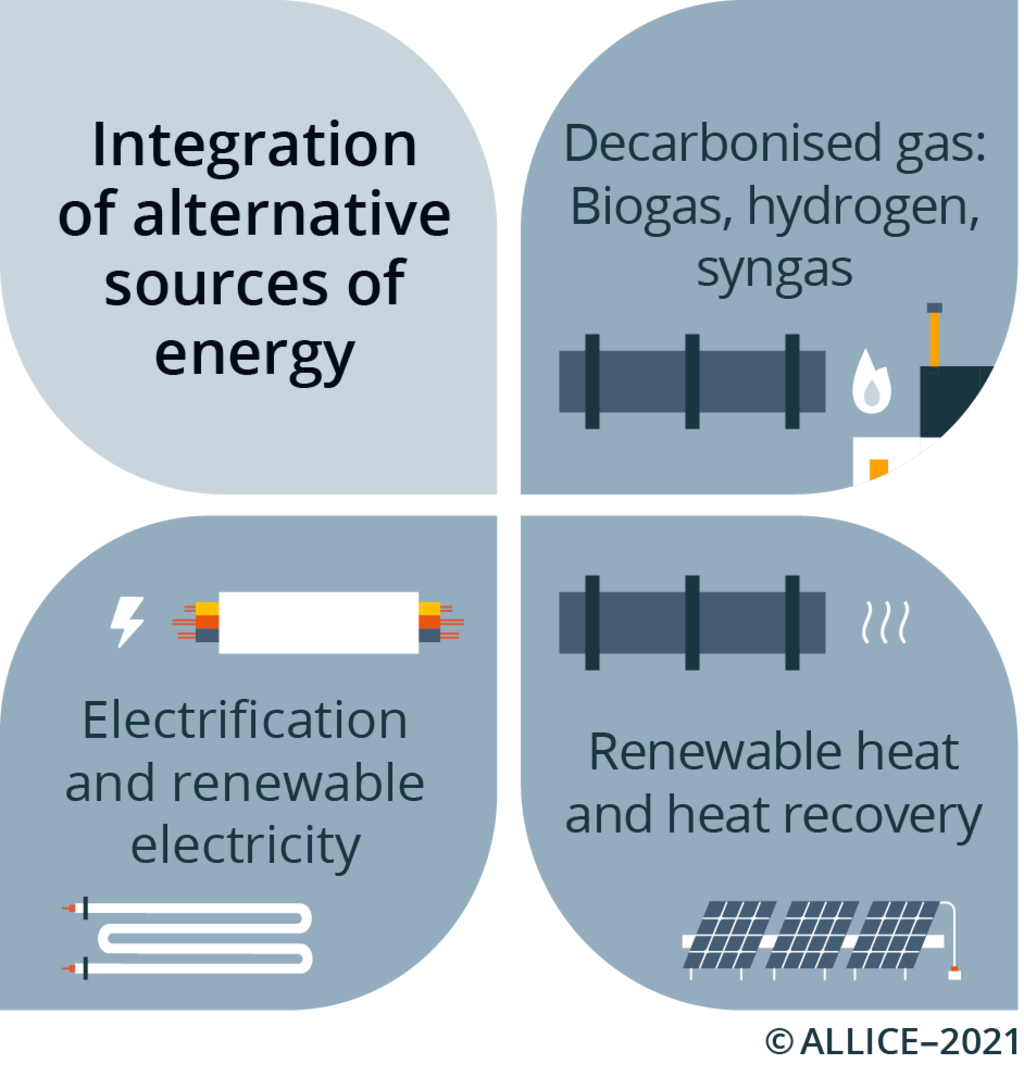
Integration of alternative energies
The integration of alternative energies - via decarbonised gases (biomethane, hydrogen, and syngas), process electrification, renewable electricity, and also renewable and recovered heat (biomass, waste heat) - is an important lever for reducing the carbon impact of industrial sites.

However, this integration must be carried out under optimal conditions to result in a real gain in process energy efficiency.
ALLICE has proposed to its members:
- A study on the electrification potential of industrial processes in two parts:
- The first part part covers the identification of the processes concerned, the electrification technologies and their constraints, but also a techno-economic analysis of technology/process pairs for different industrial sectors (chemical, food processing, tiles and bricks, metallurgy, etc.)
- The second part involves a macroscopic study of the electrification potential at national level, an assessment of the role of energy and carbon price trends, an analysis of the externalities of electrification, and the impact on the electricity grid
- A study on renewable gas integration potential (biomethane, biogas, syngas, hydrogen) in industrial processes: technologies, constraints, economic conditions for success.
- A study on the integration potential of solar heat in industrial processes
-Energy hybridisation of industrial processes.
-Deployment of heat pumps in industry: market, integration issues and emerging solutions.
-Summary of prospective studies on the future availability of biomass
-Summary of prospective studies into the future availability of hydrogen